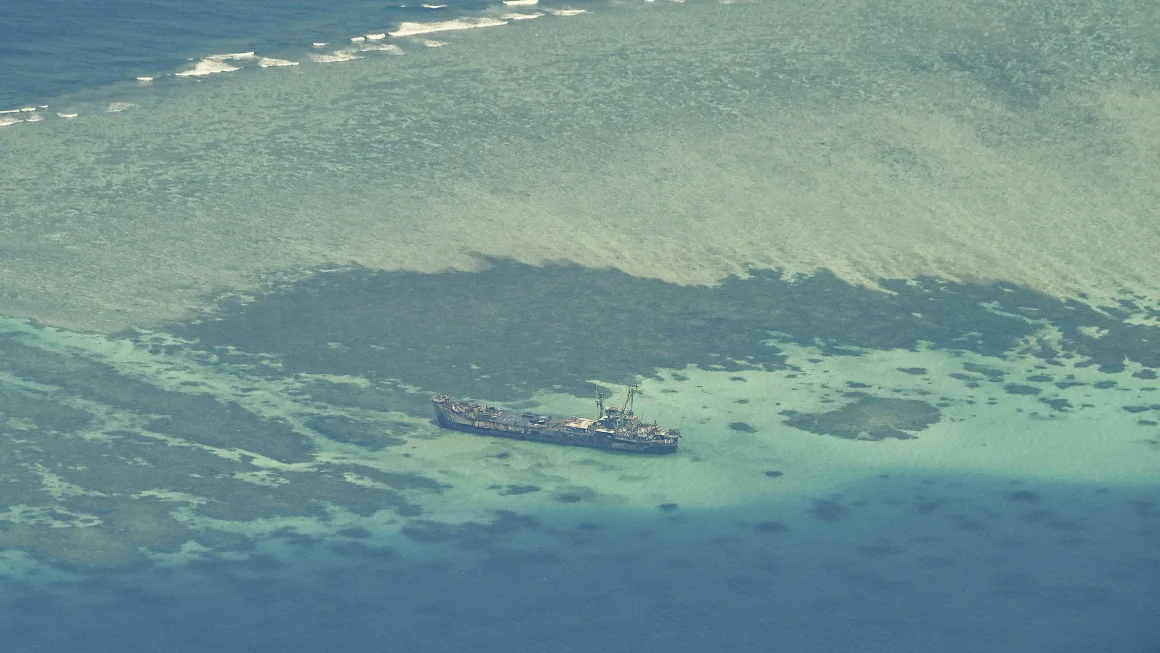He Wenping, Senior Research Fellow, Charhar Institute and West Asia and Africa Studies Institute of the China Academy of Social Sciences
Oct 25, 2024
Such a conflict would not align with American interests, as there would be no assurance of success and it would be ethically unjustified. War between Israel and Iran could spiral into an uncontrollable and devastating Armageddon in the Middle East.
Xiao Bin, Deputy Secretary-general, Center for Shanghai Cooperation Organization Studies, Chinese Association of Social Sciences
Oct 25, 2024
The longer the war drags on, the more variables there will be. Bearing this in mind, Volodymyr Zelenskyy may modify his tough stance against giving up land and seek more pragmatic ways to end the war, such as a truce conditional on NATO or European Union membership.
Sajjad Ashraf, Former Adjunct Professor, National University of Singapore
Oct 25, 2024
The withdrawal of the Philippine coast guard cutter BRP Teresa Magbanua from Sabina Shoal highlights rising tensions in the South China Sea, where China and the Philippines assert conflicting territorial claims. While it opens the door for potential diplomacy, the incident also underscores the Philippines' growing alignment with the U.S. amid concerns of becoming collateral damage in broader geopolitical rivalries.
Xiao Bin, Deputy Secretary-general, Center for Shanghai Cooperation Organization Studies, Chinese Association of Social Sciences
Oct 08, 2024
For the Ukrainian president to consummate his victory plan he must either wait for or create favorable external conditions. The plan is closely intertwined with the evolving dynamics of relations between China, the United States and Russia.
Brian Wong, Assistant Professor in Philosophy and Fellow at Centre on Contemporary China and the World, HKU and Rhodes Scholar
Sep 30, 2024
While China is well-positioned to mediate peace in Myanmar due to its economic and strategic interests, its current approach of maintaining relations with all sides in the conflict has not been sufficient to drive meaningful progress. Lasting peace will require China to take a firmer stance, promote constructive dialogue, and collaborate with regional partners to address the humanitarian crisis and political instability.

Sep 30, 2024
Derek Grossman is a senior defense analyst at RAND focused on a range of national security policy and Indo-Pacific security issues. He closely tracks intensifying U.S.-China competition throughout the region, including Asia and Oceania. Grossman was interviewed recently by Wang Zhijin, a reporter for China-US Focus, at the recent Xiangshan Forum in Beijing.

Sebastian Contin Trillo-Figueroa, Geopolitics Analyst in EU-Asia Relations and AsiaGlobal Fellow, The University of Hong Kong
Sep 27, 2024
The Philippines sits at the crossroads of the Pacific and Southeast Asia, navigating its historical ties to the U.S. and proximity to China with extreme care and diplomatic acumen. As China seeks to grow its power this decade, the Philippines will surely play a major role in how things unfold.
Niu Xinchun, Professor, China-Arab Research Institute, Ningxia University
Sep 21, 2024
The United States plays the role of “necessary devil” in the Middle East, yet it is still valued as a key ally by Arab nations and Israel. America’s unwavering support for Israel often draws a backlash from the Arab world. However, the Arabs’ moral imperatives may clash with their strategic interests.
Richard Javad Heydarian, Professorial Chairholder in Geopolitics, Polytechnic University of the Philippines
Sep 21, 2024
China wields the largest naval capacity in Asia, and has shown no qualms about deploying it to contest waters in its vicinity. The Philippines sitting so near China have faced the brunt of China’s aggressive actions, and must navigate the situation with great strategic acumen.
Doug Bandow, Senior Fellow, Cato Institute
Sep 13, 2024
The pursuit of absolute security by individual nations, especially major powers like the U.S., risks destabilizing global peace as competing demands for dominance in areas like technology and economics grow. Smaller nations, particularly in the Global South, often find themselves caught in the struggle, with multilateral cooperation and inclusive dialogue essential to reducing the tensions that this competition creates.